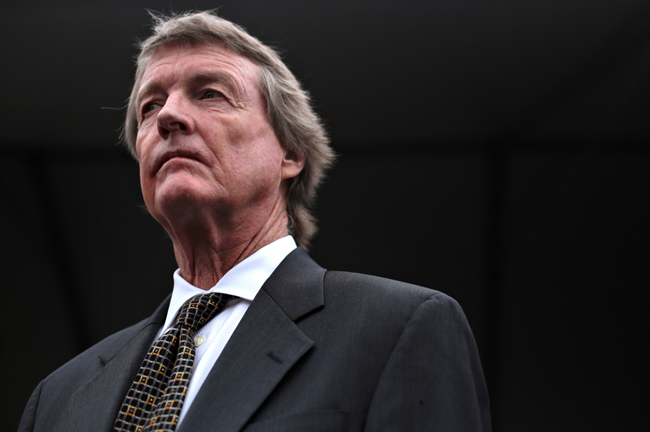The search for the next president of the University was jump-started last week as a finalist for the position of UT System chancellor was named. Assuming no truly frightful skeletons emerge from Admiral William H. McRaven’s closet in the three-week waiting period mandated by state law, his ascension to the post is all but certain.
But why does that matter at the University level?
Early last month, news leaked that Francisco Cigarroa, the current chancellor of the 15-campus university system, had given UT President William Powers Jr. an ultimatum: step down or risk being fired. Ultimately, Powers was “spared” in the sense that Cigarroa agreed to let him resign next June. Tensions between Powers; Cigarroa; the regents, who choose the chancellor and president, approve University investments, set tuition rates and oversee contract negations; and Gov. Rick Perry, who appointed the current crop of regents, had long been simmering largely over Powers’ resistance to a number of market-driven proposals introduced in 2008 to change higher education in Texas. Since 2008, the feud has at times devolved into farce, as when Regent Wallace Hall embarked on a witch hunt against Powers that saw him pull in hundreds of thousands of pages of documents that cost the University close to $1 million to provide. It still isn’t entirely clear what leverage Cigarroa thought he had last month to deliver the death blow to Powers. Some have speculated that it may have involved new information regarding Powers’ role in what has been called an admissions “scandal” to admit to the University the underqualified acquaintances of state legislators. When asked in writing for help in securing such applicants admission to the University, Powers had been known to pass along the letter to the admissions office and respond with a form letter. Given the lack of any further information, we doubt that any smoking gun actually exists.
Now that Powers has announced his resignation, the regents will begin to search for his replacement, a task that will be made much easier by the presence of a leader at the helm of the System. While the plan all along was for Cigarroa’s replacement to be in place before Powers’, McRaven’s selection will likely do two things: catalyze interest in the position and give it direction. The mere presence of a leader will lend an air of security and stability, while onlookers until now on the fence about applying will begin to self-select as a result of McRaven’s military credentials. Some may appreciate his leadership ability while others of a purely academic bent may turn their noses up at his lack of academic credentials.
It remains to be seen exactly what effect the appointment of McRaven will have, so students should pay close attention this fall.
















